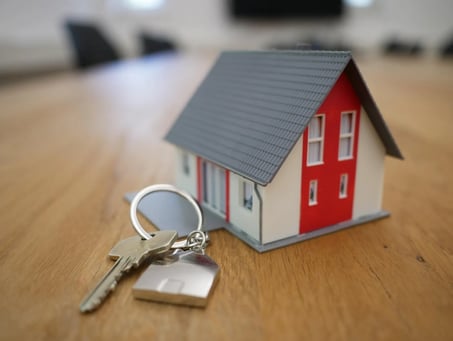4 min read
What to Know About Buying Rental Property as an Investor
![]() David Schwartz
Jun 16, 2023 4:32:51 AM
David Schwartz
Jun 16, 2023 4:32:51 AM

Buying rental property can help you build wealth and give you a safety net. A good rental can provide you with monthly income and fund your retirement, but you must find the right property to succeed. Remember, quality properties may not be great rentals due to location or other issues. You'll have to pick a high-demand location to maximize your return. The following tips can ensure you make smart decisions.
Related: Case Study - Overnight Savings
Why Should You Focus On Buying Rental Property?
Buying rental properties is a very profitable investment, and finding other assets that offer better returns would be difficult in the long run. If you hire a good property manager, your rental allows for passive income. Either way, there are several reasons why you may decide to purchase a rental, including:
- Purchasing a property for the first time can help you generate passive income and build wealth for decades.
- A rental can give you an excellent safety net and improve your financial security.
- When you purchase and rent your first property, you can use this cash flow to pay the mortgage and pad investors' pockets.
- Owning your first rental gives you the freedom to sell. Inconsistent cash flow prevents owners from selling the property when they need liquidity.
- Over time, most house values rise so that you can benefit from asset appreciation.
- While not all investors choose to buy a rental property, becoming a landlord will add diversity to your portfolio.
Are you wondering how to monitor your tenant’s water usage and save money? The Water Scrooge offers a Smart Watering Device to help cut costs!
1. Do Your Homework
Buying a property and renting it without a plan is a bad idea. Before you do anything, plan your strategy and goals. Do you want a single or multifamily property? Which location do you want to pick? What budget do you have? Will you manage the property, or will you hire a property manager? Answer these questions and get your goals with how you'll meet them on paper before you buy. Remember, a bad investment can ruin your business. You can start looking at figures once you settle on a location and property type.
2. Get Ready to Step Into the Role of a Landlord
Some landlords like to fix things themselves, while others prefer to use a property manager. Learn about your home's amenities and how to fix them so you can address any issues. Consider using a third-party property manager to help lighten the load and let you focus on more critical tasks. These third parties allow you to buy multiple properties without getting buried in work.
3. Pay Down or off Your Personal Debts
Did you know that you can buy your first property while having debt? Also, most first-time landlords go into debt. However, remember that rentals can be expensive. You want to save for unexpected expenses, and reducing your debt makes this easier. Organize your finances before buying anything.
4. Pick a Desirable Location
Location is the single most important consideration for property buying. You can raise rents if you buy near desired areas, so you must know where to buy. Location will also impact how you run your property. You may be better off using it as a vacation rental in a tourist-prone area. Through colleges, you could set up student housing. Research the location before buying, as it impacts everything.
5. Pick the Right Financing Type
Most of the time, first-time landlords or investors think all you have to do is find tenants and pick up rent checks. However, monthly positive cash flow and long-term appreciation depend on your financing. Having higher monthly payments lowers your cash flow. Remember, most loans require a 20% to 30% down, and homeowner's insurance can be more expensive.
Your rental will also have other expenses. If you have a property manager, they typically charge between 8% and 10% of your monthly rent. You must also consider snow removal, landscaping expenses, and broken appliances or amenities like the dishwasher or toilet. Before you buy, talk to your lender or mortgage broker about your monthly payment and financing.
6. Get Landlord Insurance
It's better to be safe than sorry; this rings true for buying landlord insurance. It can help protect you from losing your portfolio, and you buy it with homeowners insurance. Adding this insurance can help protect against lost income, property damage, and liability.
7. Enlist the Help of a Real Estate Agent
Offers for rentals and primary residences are different, and you want the best deal possible. Spending money on rentals reduces your cash flow, but good agents can help ensure you get a great deal. An agent can find the property you want easier, and they'll ensure it matches your financing and plan.
8. Double Check All of Your Expenses
Renting or buying a property for the first time can be intimidating. New investors commonly get surprised by unexpected expenses, so you want to research and prepare. You have to track every operating cost to help you build a feasible budget after you account for everything.
9. Know Your Legal Obligations
Landlords must follow the laws; every state has regulations to protect tenants and landlords. However, you want to learn the laws because ignorance can ruin a successful investment. Before buying anything, ensure you know how to operate inside the law. Generally, landlord-tenant law has five broad areas. They include:
- Landlords manage security deposits; you can always charge them, but laws will dictate how much.
- Landlords must reveal property owners, which means telling your tenants (usually in writing) who owns the property and how to contact them.
- Landlords have to hand over keys after the tenants sign the lease.
- Landlords must have a lease outlining how to maintain the property once tenants move in.
- Landlords have to comply with local liability laws.
10. After You Have an Accepted Offer
Once you have an accepted offer, the clock starts. If you have a quick closing, you must know what you want to do with the property. Once you do, you can call property managers and source new tenants.
You can post pictures of the house with a general location to gauge interest before you show it. Take your time to find your tenants, and remember, successfully renting your property depends on getting good tenants. Check every applicant, and don't rent to the first one that shows interest.
Related: Green Landlording - Sustainability and Cost Savings
Risks of Buying Buying Rental Property
Vacancies are one of the most significant risks of having a rental property. Don't buy with the expectation of renting all year round, and consider temporary vacancies between tenants. When your lease term ends, ensure you have room in your budget to cover vacancies.
Exit and maintenance costs are also risks. You could have water damage or broken appliances, and it's your responsibility to fix them, so you need room for them in your budget. Exit costs are essential if you sell your property. It can take time, and this can cut into your monthly profits.
Are you trying to improve your monthly cash flow? Contact The Water Scrooge to see how we can help lower your utilities.
Take Charge of Your Utility Expenses With the Water Scrooge - Elevate Your Rental Business and Unleash New Profit Opportunities
You're only a step away from transforming your rental property into a thriving investment. With The Water Scrooge, you can significantly reduce utility costs, enhance the value of your property, and experience a seamless and efficient rental operation. Ready to make the switch? Make your move now, and watch your profits grow.

